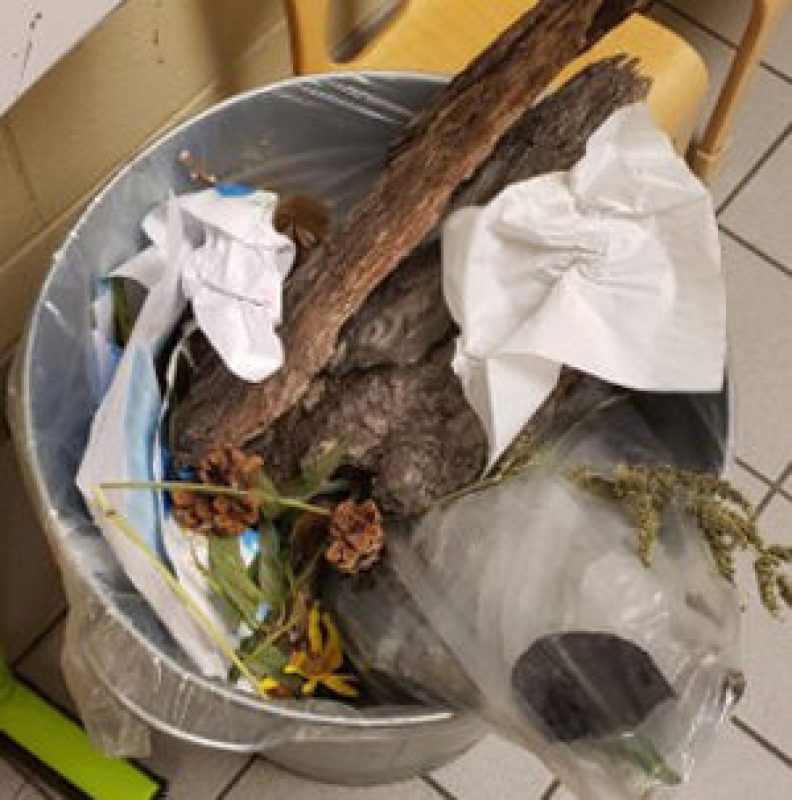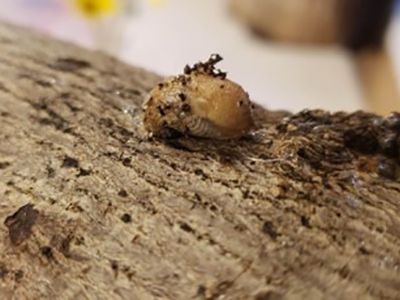A group of Lab School Educators gathered as part of the SSHRC funded Climate Action Network project. We spent the better part of the day thinking on how we can live well with the more-than-human world, how we can honour the lives lost when something like a flower or tree is cut down and killed, etc. When getting ready to leave, after a day of thinking with our collective, I arrived in the room to this scene…



I couldn’t help but think what other trees may feel seeing their fellow trees bark/skin thrown haphazardly into a garbage can; destined for a landfill where it cannot share its gift of decomposing and returning to the earth to feed other beings (bugs, fungi, other plants as compost etc).
I began to take pieces out of the garbage to at least put in the large compost bin and on this log in the red garbage can I saw this…..
Slug. Cousin of Snail. In the garbage, fully alive resting on this log.
In the name of what would this snail lose their life? Efficiency? Cleanliness? Aesthetics of the space/playground?

